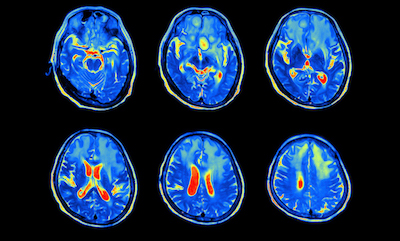Stress Associated with Impaired Memory, Lower Brain Volumes.
 High levels of the hormone cortisol, which the body produces in response to mental and physical stress, are associated with worse memory and visual perception, according to a new study co-authored by School of Public Health researchers.
High levels of the hormone cortisol, which the body produces in response to mental and physical stress, are associated with worse memory and visual perception, according to a new study co-authored by School of Public Health researchers.
The study, published in Neurology, also found an association between higher cortisol levels and multiple areas of microstructural changes in the brain, as well as lower total cerebral brain volume in women.
“We don’t have evidence of causation, but there is certainly a strong association between higher levels of a stress-related hormone and lower cognitive function,” says study co-author Alexa Beiser, professor of biostatistics.
The researchers used data from the BU-based Framingham Heart Study, one of the world’s longest-running studies on cardiovascular disease. The researchers looked at data on 2,231 dementia-free people from the now-middle-aged third generation of Framingham participants, who underwent cognitive testing for memory, abstract reasoning, visual perception, attention, and executive function. Of these, 2,018 also had a brain MRI to assess total white matter, lobar gray matter, and white matter hyperintensity volumes and fractional anisotropy measures.
The researchers measured cortisol levels by taking blood samples from the participants in the morning, after they had been lying down for about 10 minutes.
The researchers found that higher cortisol levels were associated with worse memory and visual perception. Higher cortisol was also associated with multiple areas of microstructural changes. In women but not in men, they found that higher cortisol levels were also associated with lower total cerebral brain and occipital and frontal lobar gray matter volumes.
The study was co-authored by Jayandra Himali, assistant professor of biostatistics; Vasan Ramachandran, professor of epidemiology; and doctoral student Sarah Connor. The study’s lead author was Justin Echouffo-Tcheugui of Brigham and Women’s Hospital and Harvard Medical School, and the other co-authors were Sudha Seshadri of the University of Texas Health San Antonio; and Pauline Maillard and Charles DeCarli of the University of California, Davis.